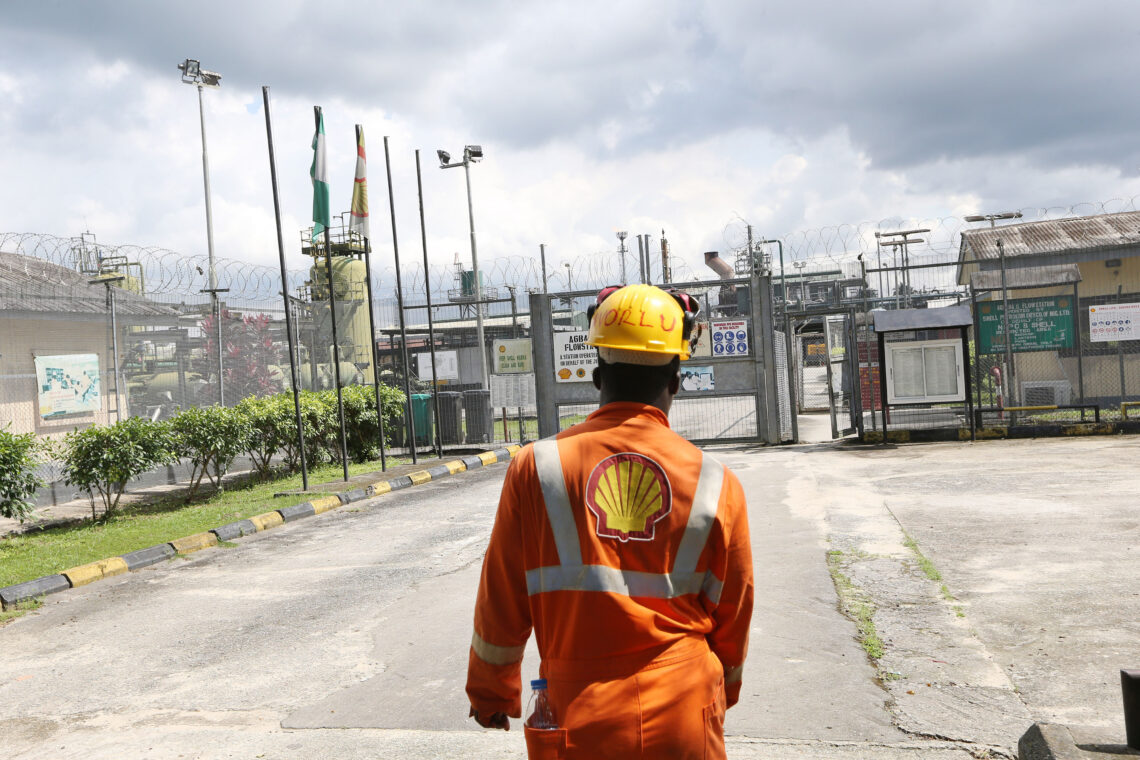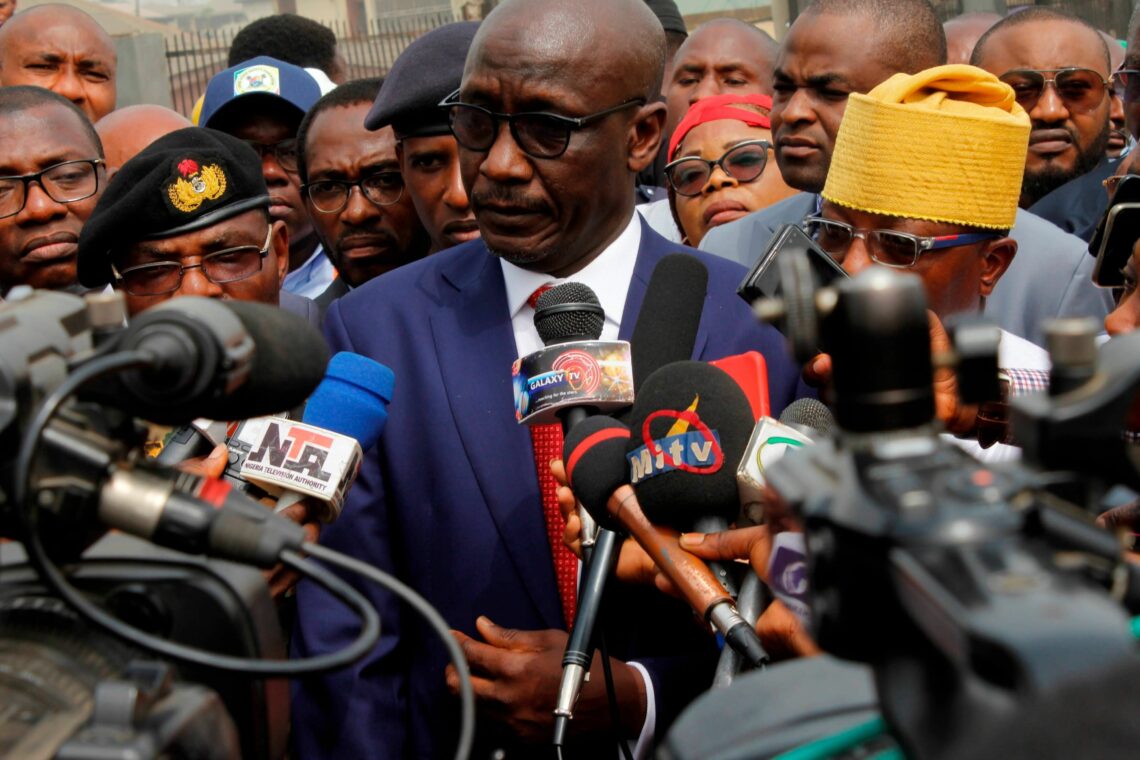Nigeria’s oil policy at a crossroads
Even before the pandemic, the Nigerian economy faced structural issues. Collapsing oil prices could make the country spiral into a recession. If pushed for full compliance by OPEC, Nigeria – which is highly dependent on oil exports for revenue – could seek to end its membership.

In a nutshell
- The Nigerian oil sector was fragile even before the pandemic
- OPEC might refuse to bear the costs of Nigeria’s noncompliance
- The country could end its membership in the organization
Nigeria has long been battling structural problems, particularly in its economy and oil sector. The Covid-19 pandemic and subsequent economic shocks only magnified them. The country has not learned how to escape the resource curse; it remains vulnerable to the vagaries of global oil markets. Africa’s largest economy is now facing another deep recession only shortly after having recovered from the previous price collapse in 2014.
The Nigerian government has failed to reach its ambitious oil production milestones, and investment was struggling even before the pandemic. The looming threat of peak oil demand and the shrinking market will claim victims among oil producers. Nigeria, as a high-cost producer, could be among those who go first.
Today’s low oil prices ought to incentivize the government to pursue much-needed economic reforms and improve the investment climate in the oil sector. However, the urgent need to raise revenues could prevent the government from pursuing this rational path. It also risks endangering the country’s relationship with OPEC.
Economic struggle
All oil producers have suffered from the unprecedented collapse in oil demand and oil prices this year. However, the degree of impact varies significantly: the higher the dependence of an economy on the oil sector, the stronger the blow. In Nigeria, nearly half of federal government revenues come from oil, which also generates more than 90 percent of export revenues and almost all of the country’s foreign exchange. Nigeria needs an oil price of more than $130 per barrel to balance its budget; by comparison, Saudi Arabia needs $76 and Russia, $42.
The problem facing Nigeria is not only low oil prices but also declining production.
The country’s gross domestic product (GDP) faithfully trails oil prices, and so does government spending. The oil price crash in 2014 sent the Nigerian economy into a recession – the country’s first since 1991. Then, just as recovery seemed to be around the corner, Nigeria was hit by the coronavirus. The International Monetary Fund (IMF) had forecast economic growth of 2.5 percent for Nigeria this year but downgraded it to -5.4 percent following the pandemic. Experts fear that the current crisis might push Africa’s largest oil producer into a deep, decade-long recession.
Covid-19 may have triggered Nigeria’s current woes, but the country’s economy suffered from structural issues long before the pandemic. “A large infrastructure gap, low revenue mobilization, governance and institutional weaknesses, continued foreign exchange restrictions, and banking sector vulnerabilities are dampening long-term foreign and domestic investment and keeping the economy reliant on volatile oil prices and production,” concluded the IMF in 2019 as it urged the authorities to redouble their reform efforts.
Until those reforms are implemented, oil revenues will remain the backbone of the Nigerian economy. The problem facing Nigeria is not only low oil prices, which may recover once the pandemic ends but also declining production. The latter is largely the result of domestic policies, irrespective of global prices.

Threat to production
Nigeria is the 11th-largest oil producer in the world. However, its production peaked in 2005 at 2.4 million barrels per day (mb/d) and has been declining overall ever since. In 2019, crude oil production reached 1.7 mb/d, well below what the government aspired to. In 2019, Nigeria’s state oil company, the Nigeria National Petroleum Corporation (NNPC), hoped to raise output to 3 mb/d in the next two to three years.
Chronic underinvestment, attacks on oil infrastructure, corruption and regulatory uncertainty have caused major damage to the domestic industry and foreign investment.
Nigeria has a long history of oil infrastructure sabotage and militant activity in its oil-producing regions. Output comes from the Niger Delta Basin, which comprises nine densely populated southern states. Oil is produced onshore and in shallow water from hundreds of small fields connected by a wide and complex network of pipelines, then pumped for exports into five major onshore terminals.
These characteristics make production highly vulnerable to theft, referred to locally as “bunkering,” and sabotage. The Niger Delta has been plagued by unrest since the 1960s; tensions are fueled by ethnic rivalry and demands for local autonomy, ownership and fair distribution of oil wealth.
Modernizing fiscal legislation for the oil industry remains a work in progress.
In addition, production from mature legacy fields is declining and could still decline by 35 percent over the next 10 years if investment in key fields is not undertaken. Pre-Covid, major projects remained on the drawing board largely due to regulatory uncertainty, which sours investment sentiment and undermines confidence in government policy.
The Petroleum Industry Bill (PIB), for instance, was introduced in 2008 to establish a more modern, transparent and competitive legal, fiscal and regulatory framework for the Nigerian petroleum industry. However, it became the subject of intense debate and more than 10 years later, the ambitious bill has not been passed yet. Small wonder Nigeria ranked in the bottom three in Africa (just ahead of Libya and Gabon) with respect to policy perception of the Fraser Global Petroleum Survey 2018, which assesses a country’s attractiveness to international investors.
Modernizing fiscal legislation for the oil industry remains a work in progress. Unless the business and regulatory environment improves significantly, Nigeria’s hydrocarbon resources risk becoming stranded, especially when competition between producers intensifies. If oil demand peaks, high-cost producer Nigeria is unlikely to be among the last countries standing.
OPEC membership
More recently, Nigeria has featured prominently on OPEC’s “name and shame” list. It has been accused, along with Iraq and Angola, of poor compliance – in other words, of violating the organization’s production cuts agreed in the April 2020 deal.
This is not the first time that Nigeria has failed to deliver on its promises to OPEC.
This is not the first time that Nigeria has failed to deliver on its promises to OPEC. It has gotten away with partial compliance before and has thus been subsidized by OPEC’s more disciplined producers, especially the bigger producers from the Gulf Cooperation Council. Some observers believe this time will be no different.
One could argue that OPEC will force Nigeria to abide by its new compensation system. The latter stipulates that members who do not meet the required production cuts must implement additional reductions distributed over several months. Saudi Arabia has also adopted a firmer tone, continuously reiterating the importance of full compliance for the survival of the OPEC+ deal – implying the Saudi government is no longer willing to foot the bill for cheaters. Riyad’s gesture last March, when it opened the taps and flooded the market with cheap oil, sending prices in a downward spiral, was a warning to others to comply.
However, old habits die hard. In June this year, the NNPC’s Managing Director Mele Kyari said: “Definitely by the end of June, we’ll see full compliance from Nigeria. It will be done in the first half of July in the worst-case scenario. Over the past 10 days, the country has been cutting more than required under the OPEC+ pact.”
According to S&P Global Platts, however, Nigeria’s compliance for July was 65 percent.
Even if Nigeria delivers in the short term, it is unclear how long it will be able to sustain such discipline. The OPEC+ cuts clash with the necessity to salvage the country’s collapsing economy. Should the cuts be required for longer than the two years dictated by the April deal, they would interfere with Abuja’s need to increase production.
Nigeria may, of course, once again count on big OPEC members to tolerate rule-breaking behavior because, for them, the benefits from long-term cooperation may outweigh short-term sacrifices. Nigeria could also rethink its OPEC membership. The matter has been under debate for several years, as an increasing number of Nigerians believe that the organization is holding the country back. They argue that OPEC needs Nigeria more than Nigeria OPEC.


